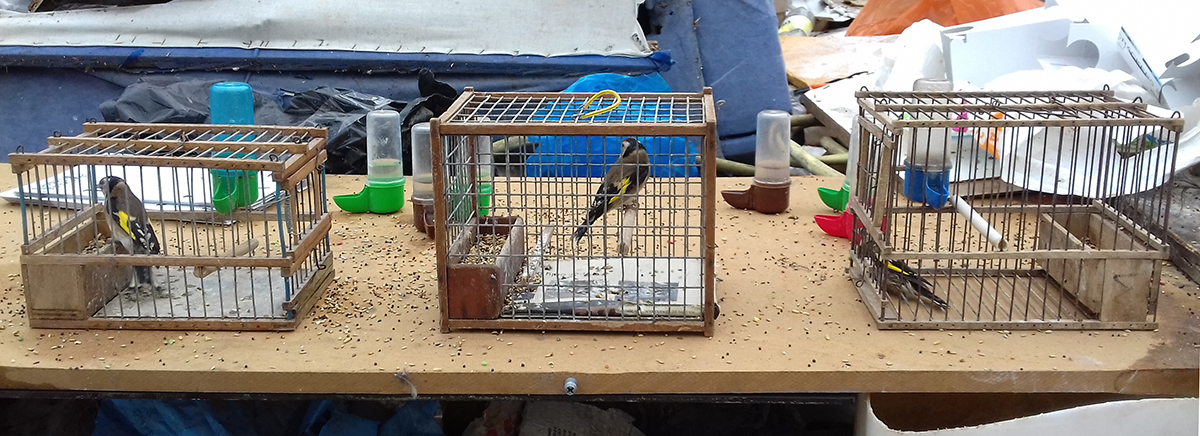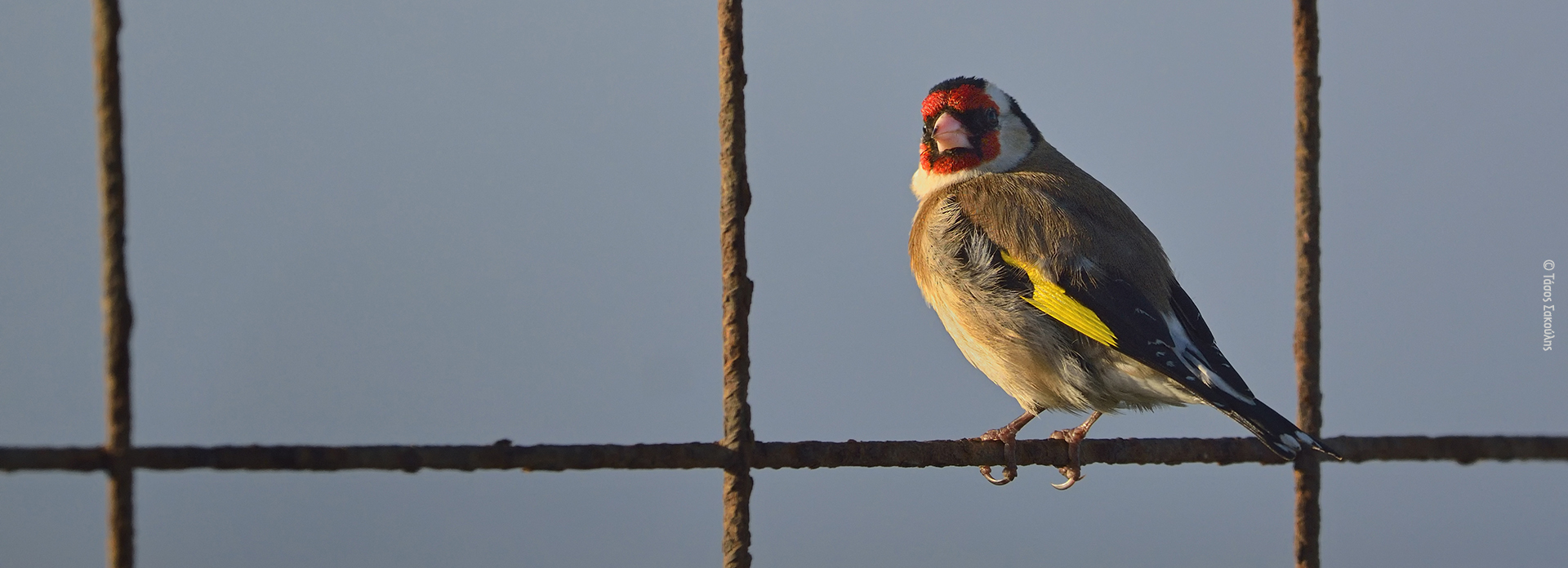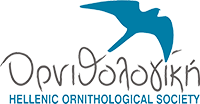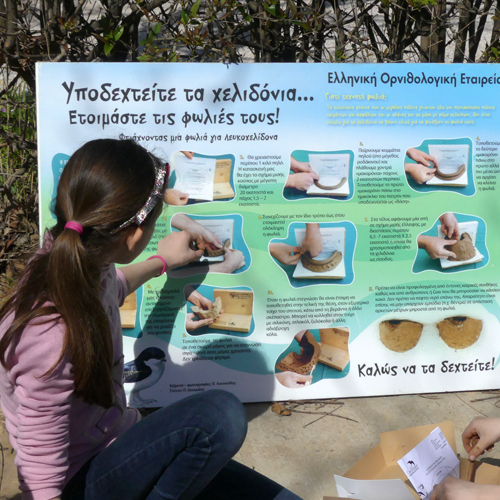With a powerfully animated TV & radio ad, HOS/BirdLife Greece launched its new nation-wide awareness campaign aiming at putting an END to the trapping and trade of wild birds, a brutal, non-selective practice and a relic of the past that unfortunately lives on as “traditional” in many parts of our country.
Greece hosts hundreds of bird species and is renowned as a globally important passage for migratory birds. At the same time, it is considered a “black spot”, due to the intensity of illegal activities and crimes committed against wild birds within its territory, mainly illegal hunting (observed in many areas throughout the year but especially during the “Spring Hunting” in the Ionian islands) and illegal trapping and trafficking of songbirds and migratory birds, a “local tradition” tolerated in many areas (e.g. many Aegean islands).
Illegal trapping and trade of wild birds should not be regarded as “tradition”; it is a CRIME by national, European and international law. According to the relevant Greek law, in line with the EU’s Bird Directive, it is illegal to cage and/or trade wild birds illegally taken from their natural environment.
Greece hosts hundreds of bird species and is renowned as a globally important passage for migratory birds. At the same time, it is considered a “black spot”, due to the intensity of illegal activities and crimes committed against wild birds within its territory, mainly illegal hunting (observed in many areas throughout the year but especially during the “Spring Hunting” in the Ionian islands) and illegal trapping and trafficking of songbirds and migratory birds, a “local tradition” tolerated in many areas (e.g. many Aegean islands).
Illegal trapping and trade of wild birds should not be regarded as “tradition”; it is a CRIME by national, European and international law. According to the relevant Greek law, in line with the EU’s Bird Directive, it is illegal to cage and/or trade wild birds illegally taken from their natural environment.

Unfortunately, although the Greek law prohibits trapping and trading, 500.000 wild birds fall victim of trappers and traffickers every year in Greece. It is important to note that this is an average figure and an underestimate of the actual number of birds killed/captured, making Greece one of the least successful countries in protecting wild birds, not only in the Mediterranean but in Europe as well.
The impact of wild birds’ trapping on biodiversity is devastating. According to estimates, over 20 million songbirds and other bird species are killed/captured every year in the Mediterranean. In Greece, from the hundreds of thousands of birds captured from the wild, a shockingly large number will not survive. Most of them will die slowly and in agony on limesticks and other traps; many more will die while being trafficked, crammed -as they are often found- by the dozens or hundreds in small cages and in horrendous conditions. In no few cases, the females, since they are of no use to the trappers, will be killed on site, not to be trapped again.
Many trappers and byers claim they love birds. Such statements, apart from sounding cynical or even outrageous, cannot contest the fact that wild birds do not belong in a cage; they are trapped in a very small space that is not made for them to live in. This is why they seem so agitated, constantly flapping their wings trying to find a way out. Furthermore, with the biodiversity crisis continuing to intensify, every interference with Nature, however small, can lead to a dangerous imbalance; and, let us not forget that, with 13% of birds in the planet endangered and 1 in 5 birds in Europe in the brink of extinction, every single bird counts.
In total, more than 55 species of wild birds are targeted by trappers in Greece. From the 24 species that more often fall victims of trapping and trade, the majority belong to the family of Finches (e.g. Goldfinches, Greenfinches, Serins), more commonly known as “songbirds”. They are mainly trafficked in open markets in the outskirts of larger Greek cities, a sad example being the market of Shistos in the wider Athens area where thousands of wild birds are confiscated on a yearly basis.

In addition to open markets, in recent years, the Internet has also become a popular platform for the illegal trade of wild birds and a site where trappers and byers exchange information and expertise, hidden behind the safety of anonymity, fake accounts and specialized fora with limited access. With the aid of our staff and volunteers, HOS/BirdLife Greece has so far provided evidence on dozens illegal activities involving online trafficking and trading of wild birds to the competent Authorities.
Furthermore, many wild birds end-up being sold in stores dedicated to the trade of songbirds as well as in pet-shops operating both in large and smaller Greek cities. It’s not uncommon for illegally captured birds to appear next to captive-bred birds that can be legally sold, provided they have a closed-type ring and documents proving they were bought from licensed breeders and thus, were not captured in the wild.
By launching our new campaign, at HOS/ BirdLife Greece we are scaling up our efforts against Illegal Killing of Birds (IKB), aiming at raising the awareness on illegal trapping and trafficking among both the public and the Authorities at the national level. We also want to help citizens make more ethical desicions when bying birds as pets and to encourage them to report crimes or any other illegality. Our message is that by continuing to tolerate or look the other way when crimes against wild birds are committed, we take part in the violent act of stripping away Greek nature of its most valuable jewels: wild birds.
Furthermore, many wild birds end-up being sold in stores dedicated to the trade of songbirds as well as in pet-shops operating both in large and smaller Greek cities. It’s not uncommon for illegally captured birds to appear next to captive-bred birds that can be legally sold, provided they have a closed-type ring and documents proving they were bought from licensed breeders and thus, were not captured in the wild.
By launching our new campaign, at HOS/ BirdLife Greece we are scaling up our efforts against Illegal Killing of Birds (IKB), aiming at raising the awareness on illegal trapping and trafficking among both the public and the Authorities at the national level. We also want to help citizens make more ethical desicions when bying birds as pets and to encourage them to report crimes or any other illegality. Our message is that by continuing to tolerate or look the other way when crimes against wild birds are committed, we take part in the violent act of stripping away Greek nature of its most valuable jewels: wild birds.
“Wild Birds belong in NATURE”, HOS/BirdLife Greece’ new TV & radio campaign, was made possible with the financial support of EU’s LIFE Against Bird Crime project and MAVA Foundation. Our new spot is currently on air, naitionwide, broadcasted as a social message by national, regional and local TV- and radio stations by decision of the National Council for Radio and Television (NCRTV).
- Watch and share our new ad, available HERE
- Report every illegal incident in Greece to the nearest Forestry (call
 1591), the Police or using our dedicated online form
1591), the Police or using our dedicated online form
- Learn more about our efforts to eliminate IKB in Greece HERE
Help us keep birds WILD and FREE!
- You can find more information on Illegal Killing of Birds (IKB) in the Mediterranean and Greece HERE
- EU’s LIFE Against Bird Crime (LIFE17 GIE/NL/000599) project is focusing on the migratory routes that pass through the countries’ “black spots” and aims at eliminating crime against wild birds and ensuring safe migratory flyways
- Learn more about BirdLife's Flight For Survival HERE




